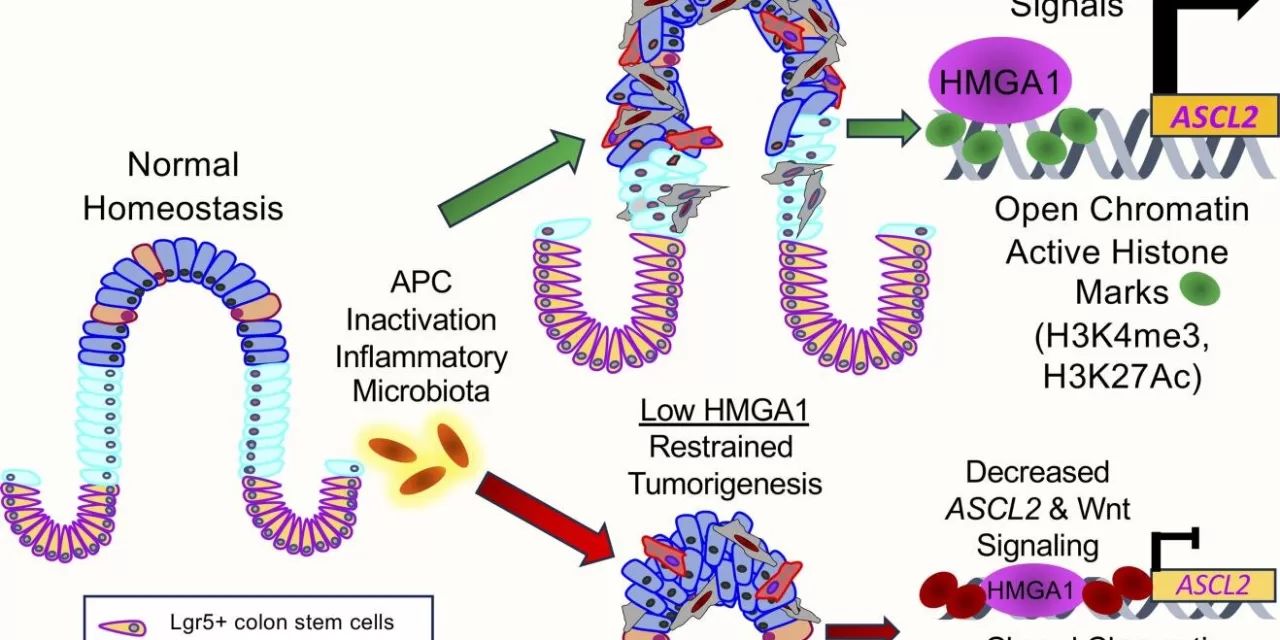A groundbreaking study led by researchers from the Johns Hopkins Kimmel Cancer Center and associated institutions has identified a crucial gene that may act as a molecular “key” to the development of colon cancer. The findings, published in the Journal of Clinical Investigation, shed light on the role of the high mobility group A1 (HMGA1) gene in tumor formation and progression, potentially paving the way for new therapeutic strategies.
Unlocking the Mechanisms of Colon Cancer
Previous research had already detected high levels of HMGA1 in tumors from colon cancer patients. However, its precise function remained unknown. Dr. Linda Resar, professor of medicine, pathology, and oncology at Johns Hopkins, and her team discovered that HMGA1 plays a pivotal role in activating tumor-promoting genes in mice with a mutation in the adenomatous polyposis coli (APC) gene—a mutation present in over 90% of colorectal tumors.
“HMGA1 functions like a molecular ‘key’ that ‘opens’ regions of the genome, activating stem cell genes in mutant colon cells. This process drives tumor development and progression,” explains Dr. Resar.
As an “epigenetic regulator,” HMGA1 modifies the structure of DNA, allowing specific genes to be turned on or off in response to various factors, including mutations, inflammatory signals, and environmental influences such as diet.
Linking Gut Inflammation to Cancer
Modern diets rich in ultra-processed foods have been associated with chronic gut inflammation, a known risk factor for colon cancer. To investigate this connection, the researchers used two distinct mouse models with APC mutations—one exposed to an inflammatory bacterium linked to human colon cancer and another driven strictly by genetic factors.
In both cases, reducing HMGA1 expression significantly slowed tumor growth and extended survival rates, suggesting that targeting HMGA1 could be a viable treatment approach. “If we can block HMGA1’s function by even 50%, we may significantly impact tumor development without harming normal cells,” Dr. Resar notes.
Potential for Therapeutic Advances
Through advanced genetic sequencing techniques, the team identified that HMGA1 activates ASCL2, a gene previously linked to early-onset colon cancer. This finding may help explain the rising incidence of colon cancer among younger individuals.
Further investigation into human tumor samples confirmed elevated levels of HMGA1 and its associated stem cell genes, reinforcing its role in colon cancer development. With these insights, the researchers are now focused on developing therapies to block HMGA1 and stimulate immune responses against tumors.
“Our findings extend beyond colon cancer and may be relevant to other malignancies, including blood and pancreatic cancers, where HMGA1 levels are also elevated,” Dr. Resar adds.
Future Research and Implications
The discovery of HMGA1’s role in colon cancer opens new avenues for research and treatment. The next challenge is designing drugs or gene therapies to inhibit HMGA1 while preserving normal cell functions.
As scientists continue exploring these possibilities, this study marks a significant step forward in understanding the genetic and environmental factors contributing to colon cancer.
Disclaimer: This article is for informational purposes only and does not constitute medical advice. Readers are encouraged to consult healthcare professionals for diagnosis and treatment of medical conditions.












